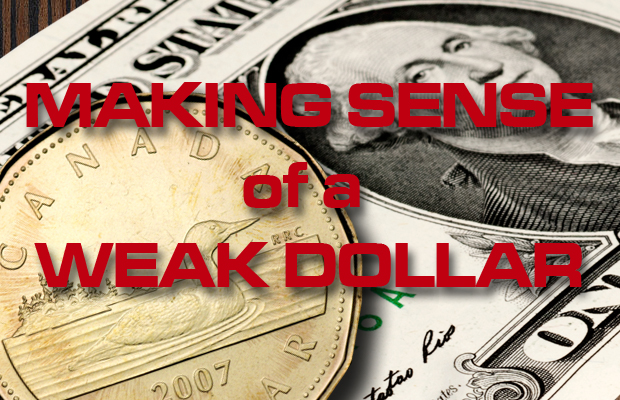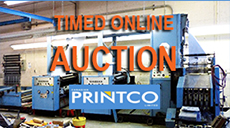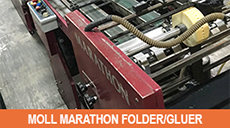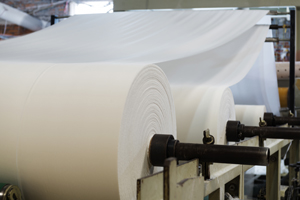
|
|
| Home › Articles › Here |
|

|
||||||||||||||||
| By: Nick Howard | Date: January 2016 | Contact the Author |
|||||||||||||||||
|
Back in the spring of 2011,
Canada’s dollar was flying
high. It hit a level of almost
five cents above the American
greenback. As experts
pointed to the advantages of Canada’s
banking regulations, the Great White
North was outpacing the United States
coming out of the 2008 worldwide recession.
The purchasing power of Canada’s
printing industry was fantastic. Machinery
was at an all-time low – as much as 40-percent less than 2003 levels. It was never
going to last, however, and today we face
USD 30-per-barrel oil, metal prices spiraling
to near historic lows and our dollar is
trading in the 70-cent range relative to the
once again mighty U.S. buck (USD). There are serious implications for domestic manufacturers facing a low Canadian dollar. First and foremost are the wild swings occurring as the Loonie bobs about finding its true value. This is our most difficult issue. If the Loonie would just park itself somewhere, we might be able to cope and adjust. But, fast moving exchange rates bring chaos to budgets and quotations. Very few businesses can benefit like billionaire George Soros has amid these FX swings. Besides machinery, a great deal of materials and consumables are priced in USD. Printers quoting work – even a few weeks ahead are now finding it difficult to hold firm prices. The Bank of Canada’s Stephen Poloz opined that it could be two years before we see the fallout (both good and bad) from the recent and drastic decline in our currency. It is not a simple remedy to buy Canadian products or to create an artificially lower exchange rate in-house. Behind the scenes, financial markets and a global community are going to close the door. Products made in Canada will always be valued not so much on their cost but on their value in USD. Almost everything made here has some element of American content. If by chance they do not have U.S. content, it still will not matter and prices will rise just because they can!
Machinery, the most expensive product printer’s purchase, will see prices rise dramatically in the next few months. Whether these machines come from Germany, Japan, China or the U.S., they are usually imported by American companies first and converted into USD. With machine inventories mostly American held, you will pay accordingly. Meanwhile, China’s Yuan currency rides the USD and Chinese manufacturers price their products in USD. It is not just our Loonie that has been seeing declines. The Euro has dropped substantially in 2015 versus the USD. Companies like Heidelberg have the ability to play the FX markets and it’s possible they are able to sell their machinery in Canadian dollars exchanged against the Euro. Japan’s manufacturers work through their American subsidiaries or dealers and while the machinery may leave Japan in Yen, it’s bought with USD in a sometimes forward contract. Realities of the negative exchange facing Canadian printers can hit home hardest when it comes to obtaining needed parts for their machines. This revenue stream becomes particularly important for Canadian dealers if the sale of large machinery declines. There is a general assumption around the world that if a country’s currency tumbles then it becomes a great place to shop. This is largely untrue, especially with equipment. Everyone wants and expects a world price. Press makers will not sell any cheaper in Canada than they do anywhere else. If this were the case then we could assume all of us Canadians would be paying even less to for oil and gas, which is unlikely to ever happen. Besides labour, occupancy costs and taxes are safe from a falling dollar. Little else is and Canada continually faces another major issue, competitiveness. In 1998, when our dollar started to fall, Canadian printers like most other manufacturers used it like a golf handicap. Great – we just got some free strokes! The lower dollar maintained our historical position as faux Americans. The appetite to compete has been at the centre of Canadiana since confederation and why, even in 2016, we find ourselves not able to keep up with U.S. entrepreneurship. The immense size of the U.S. absorbs much of what it produces. Canada is a nation with risk adverse businesses, conservative banking and a labour pool that demands a social net. Inflation is a by-product of a low dollar, which may not be as negative as it sounds. Large printers who do business in the U.S. can shield themselves from some of the risk by offsetting their materials purchases against sales made, both in USD. This leaves truly Canadian costs (labour) to be more profitable. The dwindling middle class of print – companies with limited sales reach – will face more systemic challenges. As printers wait for calmness in the big-ticket market, the best thing they can do is sell products in the U.S. This alone will not only dampen the effect of bad rates but help us all in Canada to be more competitive as we go head to head with some of the best businesses in the world. The low Loonie may not be forever. Oil will shoot back up eventually and China will hopefully resume its bullishness for Canadian raw materials. When this happens our dollar will strengthen.. |
|||||||||||||||||
Contact the Author |
|||||||||||||||||
|
|||||||||||||||







